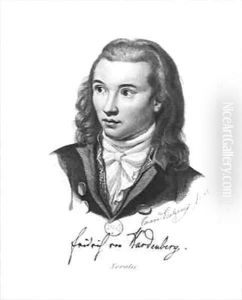Friedrich Eduard Eichens Paintings
Friedrich Eduard Eichens was a German engraver, born in Berlin in 1804. He grew out of a cultural milieu that was rich in artistic fervor, during a period when Germany was experiencing a resurgence in various art forms, including the fine art of engraving. Eichens received his early education in the arts in his hometown, showing early promise in the meticulous and demanding craft of engraving, which requires both artistic vision and technical precision.
Eichens furthered his studies under the guidance of notable figures in the field, including the renowned engraver Carl Wilhelm Gropius, who was instrumental in honing his skills and shaping his artistic sensibilities. This mentorship was crucial in Eichens' development as an artist, providing him with a solid foundation in the technical aspects of engraving as well as exposure to the artistic trends of the time.
Throughout his career, Friedrich Eduard Eichens became known for his exceptional skill in capturing the depth and detail of his subjects, which ranged from portraits to landscapes, and for his contributions to the reproduction of artworks. His engravings served not only as artworks in their own right but also as a means of disseminating the works of other artists, thereby playing a significant role in the cultural exchange and appreciation of art during his era.
Eichens' work received acclaim not only in Germany but also internationally, contributing to the prestige of German engraving in the 19th century. His dedication to his craft and his ability to convey the essence of his subjects through the intricate lines and shades of his engravings earned him a place among the eminent engravers of his time. Friedrich Eduard Eichens passed away in 1877, leaving behind a legacy that continues to be celebrated for its contribution to the art of engraving and its role in the cultural heritage of Germany.
